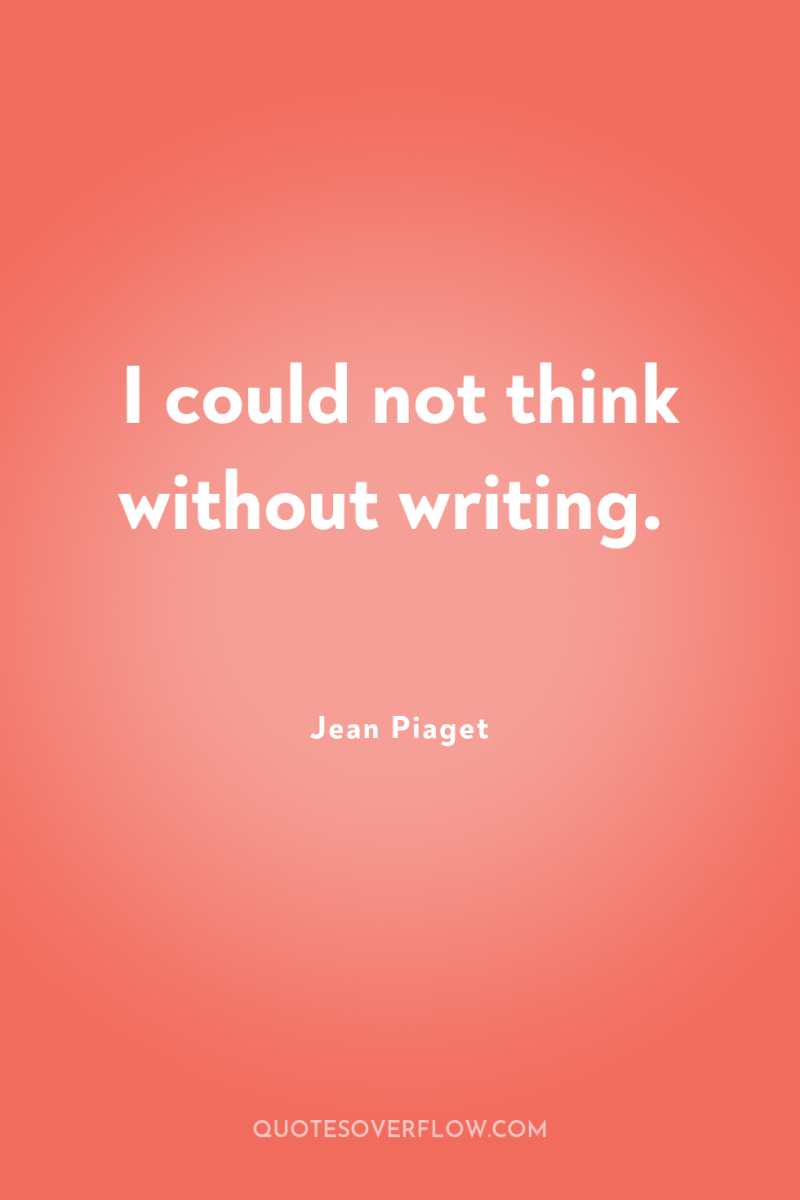
I could not think without writing.Jean Piaget
The principle goal of education in the schools should be creating men and women who are capable of doing new things, not simply repeating what other generations have done; men and women who are creative, inventive and discoverers, who can be critical and verify, and not accept, everything they are offered.Jean Piaget
I have always detested any departure from reality, an attitude which I relate to my mother's poor mental health.Jean Piaget
Everyone knows that at the age of 11-12, children have a marked impulse to form themselves into groups and that the respect paid to the rules and regulations of their play constitutes an important feature of this social life.Jean Piaget
All morality consists in a system of rules, and the essence of all morality is to be sought for in the respect which the individual acquires for these rules.Jean Piaget
From this time on, the universe is built up into an aggregate of permanent objects connected by causal relations that are independent of the subject and are placed in objective space and time.Jean Piaget
Play is the work of childhood.Jean Piaget
Intelligence is what you use when you don't know what to do: when neither innateness nor learning has prepared you for the particular situation.Jean Piaget
The main functions of intelligence, that of inventing solutions and that of verifying them, do not necessarily involve one another. The first partakes of imagination; the second alone is properly logical.Jean Piaget
Logical activity is not the whole of intelligence. One can be intelligent without being particularly logical.Jean Piaget
On the one hand, there are individual actions such as throwing, pushing, touching, rubbing. It is these individual actions that give rise most of the time to abstraction from objects.Jean Piaget
The principle goal of education in the schools should be creating men and women who are capable of doing new things, not simply repeating what other generations have done.Jean Piaget
It is with children that we have the best chance of studying the development of logical knowledge, mathematical knowledge, physical knowledge, and so forth.Jean Piaget
The current state of knowledge is a moment in history, changing just as rapidly as the state of knowledge in the past has ever changed and, in many instances, more rapidly.Jean Piaget
The goal of education is not to increase the amount of knowledge but to create the possibilities for a child to invent and discover, to create men who are capable of doing new things.Jean Piaget
Scientific knowledge is in perpetual evolution it finds itself changed from one day to the next.Jean Piaget
To express the same idea in still another way, I think that human knowledge is essentially active.Jean Piaget
This means that no single logic is strong enough to support the total construction of human knowledge.Jean Piaget
Our problem, from the point of view of psychology and from the point of view of genetic epistemology, is to explain how the transition is made from a lower level of knowledge to a level that is judged to be higher.Jean Piaget
During the first few months of an infant's life, its manner of taking the breast, of laying its head on the pillow, etc., becomes crystallized into imperative habits. This is why education must begin in the cradle.Jean Piaget
The child often sees only what he already knows. He projects the whole of his verbal thought into things. He sees mountains as built by men, rivers as dug out with spades, the sun and moon as following us on our walks.Jean Piaget